The Communist Party of Spain is a communist party that, since 1986, has been part of the United Left coalition, which is currently part of Sumar. Two of its politicians are Spanish government ministers: Yolanda Díaz and Sira Rego.

The Spanish Communist Workers' Party is an anti-revisionist Marxist-Leninist communist party in Spain. It was founded in 1973, when Enrique Líster revolted against the Eurocommunist line of Communist Party of Spain (PCE) general secretary Santiago Carrillo. The party published Análisis.

The Unified Socialist Party of Catalonia was a communist political party active in Catalonia between 1936 and 1997. It was the Catalan branch of the Communist Party of Spain and the only party not from a sovereign state to be a full member of the Third International.
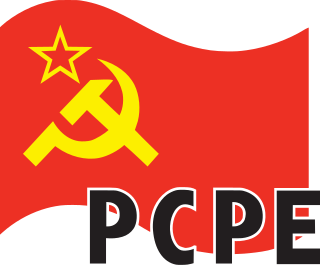
Communist Party of the Peoples of Spain is a Marxist–Leninist communist party in Spain. PCPE was founded out of the unification of several Marxist-Leninist factions. The youth organization is called the Communist Youth of the Peoples of Spain.

Communist Party of Spain (international) (in Spanish: Partido Comunista de España (internacional)), was a communist political party in Spain.

The Party of Labour of Catalonia was a communist party in Catalonia, Spain. PTC was formed in 1979 following a split from the Party of Labour of Spain (PTE). The leader of PTC was Joan Sánchez Carreté.
Catalan-Balear Communist Federation was a communist group in Spain. Formed in 1924, it joined the Communist Party of Spain (PCE), and functioned as the PCE federation in Catalonia and the Balearic Islands. Its most prominent leader was Joaquim Maurín, and its main organ was La Batalla.
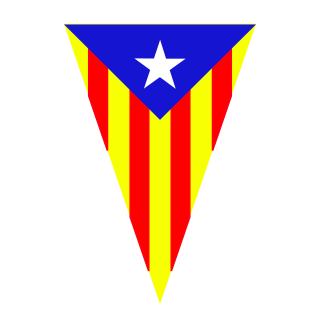
Estat Català is a pro-independence nationalist historical political party of Catalonia (Spain).

Isidre Molas i Batllori is a Catalan politician and historian, who has served as the fifth President of the Socialists' Party of Catalonia since 19 July 2008. He has been a Senator from Barcelona since 5 April 2000.

Pirates of Catalonia is a political party in Catalonia. The party is based on the model of the Swedish Pirate Party and is a member of the Pirate Parties International, it supports intellectual property reform, open access to culture and knowledge, transparency and direct democracy.

United Left is a federative political movement in Spain that was first organized as a coalition in 1986, bringing together several left-wing political organizations, grouped primarily around the Communist Party of Spain.

The Unified Communist Party of Spain was a political party in Spain. PCEU was a pro-Soviet rival to the Eurocommunist Communist Party of Spain (PCE).

Unity for Socialism was an electoral coalition in Catalonia, Spain, contesting the 1980 Catalan parliament election. The coalition represented the main groups of the non-parliamentary left in Catalonia at the time. It was constituted by the Workers Party of Catalonia (PTC), Communist Organization of Spain, Revolutionary Communist League (LCR) and the Communist Movement of Catalonia (MCC). Manuel Gracia Luño was the top candidate in the Barcelona constituency, whilst Jordi Creixans headed the Girona list, Francisco Javier Clavería (PTC) headed the Lleida list and José Semente Moya (MCC) was the top candidate in Tarragona.
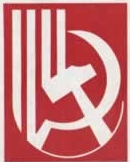
The Communist Collective of Catalonia was a political organization in Catalonia. It was formed in 1977 as a split from the Communist Organization of Spain. Leaders of CCC included Joan Oms, Antoni Montserrat, Maria Olivares and Consol Casals. CCC published Quaderns de Debat.
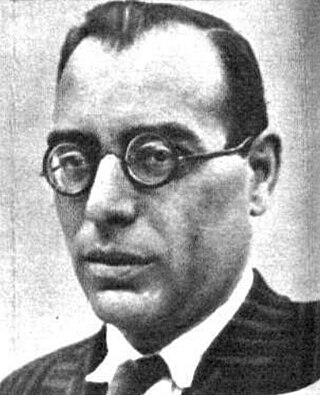
Joan Comorera i Soler was a Spanish Communist politician, journalist and writer from Catalonia who spent several years in Argentina before returning to Spain in 1931 at the start of the Second Spanish Republic. He was a Catalan nationalist, and was elected chairman of the Socialist Union of Catalonia in 1933. In 1936 he became Secretary General of the Unified Socialist Party of Catalonia (PSUC), in alliance with the Spanish Communist Party. During the Spanish Civil War (1936–1939) he built up his party into a major political force during the struggles among the supporters of the Republic between Socialists, Stalinists, Trotskyists and Anarcho-syndicalists. After the Republicans were defeated by the right-wing forces led by Francisco Franco he went into exile, living in Mexico and then in France. In 1949 he was expelled from the Communist party for his Catalan nationalism, and survived an assassination attempt. In 1951 he moved back to Catalonia using a false name. He was arrested in 1954 and died in prison four years later.
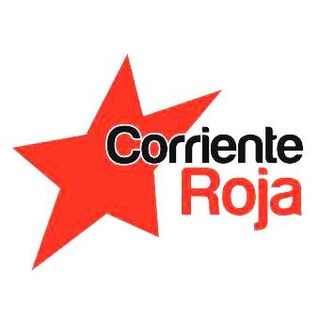
Corriente Roja is a Spanish Trotskyist political organization, adhering to the International Workers League – Fourth International in 2012. CR defends and supports social struggles, class independence and political gains of the working class in order to establish a republic of workers. CR proposes the construction of a socialist economy, based on workers' democracy and the traditions of the alternative labor movement. According to its mission statement, current Red describes itself as follows:
Corriente Roja will put in place a strategy defined by its anticapitalist Marxist character, radically democratic, internationalist, ecologist and feminist

Rafael Vidiella Franch was a trade unionist and communist politician from Catalonia. He served as a minister in the government of Catalonia during the Spanish Civil War (1936–1939).

Union of the Centre and Christian Democracy of Catalonia was an electoral coalition formed in Catalonia in December 1976 to contest the Spanish Congress of Deputies election of 1977, the first democratic election to be held in Spain since the Second Spanish Republic. It was formed by the Catalan Centre (CC) and the historic Democratic Union of Catalonia (UDC), and came to be supported by the Christian Democratic Team of the Spanish State, which did not run on its own in Catalonia. The coalition was officially registered on 3 May 1977. The alliance dissolved shortly after the election upon the start of the newly elected parliament, with UDC deputy Antón Cañellas joining the Catalan–Basque Group and Carlos Güell going into the Mixed Group.
Communist Workers' Party of Catalonia is a communist party in Catalonia. The party was founded in 1973 as a split from Partit Socialista Unificat de Catalunya as the Catalan branch of the Spanish Communist Workers' Party (PCOE), and was legalized on 28 October 1977. In 2000, it became a part of the Communist Party of the Peoples of Spain.

The Social Democratic Party of Catalonia was a political party in Catalonia, led by Jaume Casanovas and defining itself as left liberal, that split from Democratic Left of Catalonia (EDC) in April 1976 over leadership rather than ideological disagreements. The party would join the Spanish Social Democratic Federation of Francisco Fernández Ordóñez and José Ramón Lasuén.

















